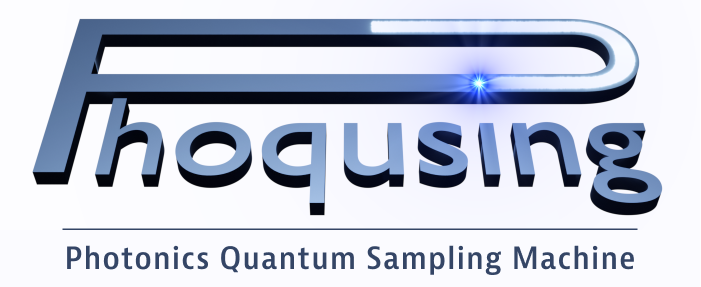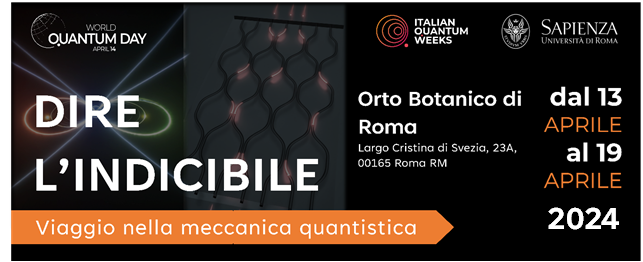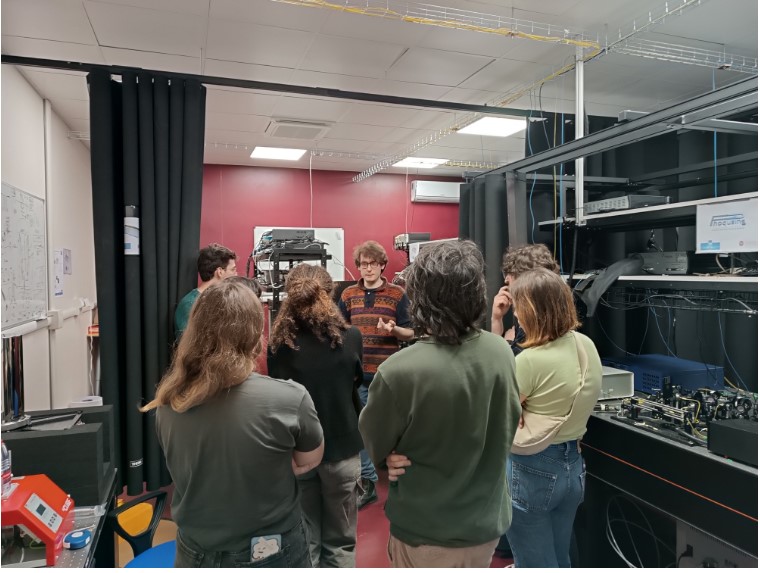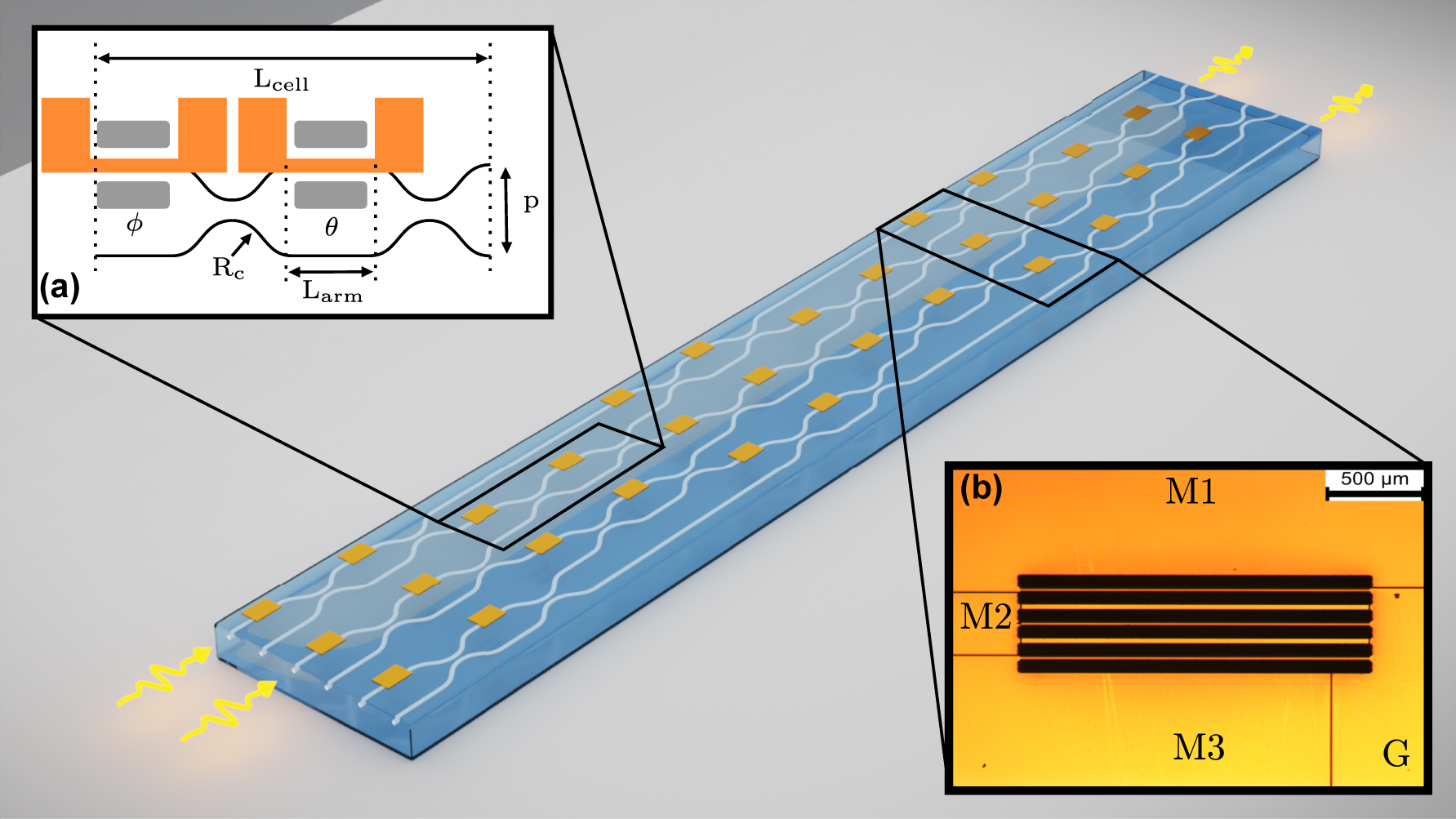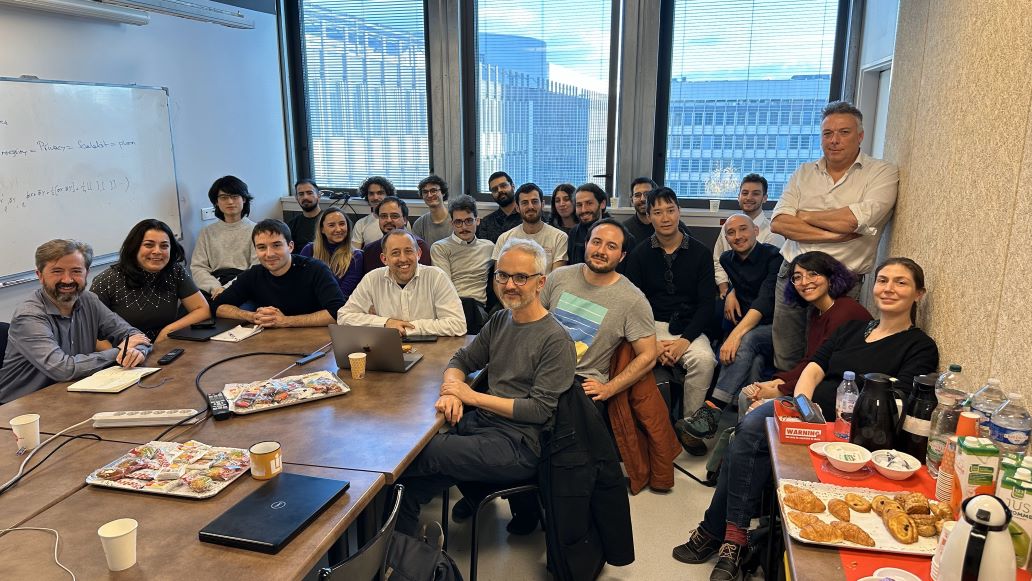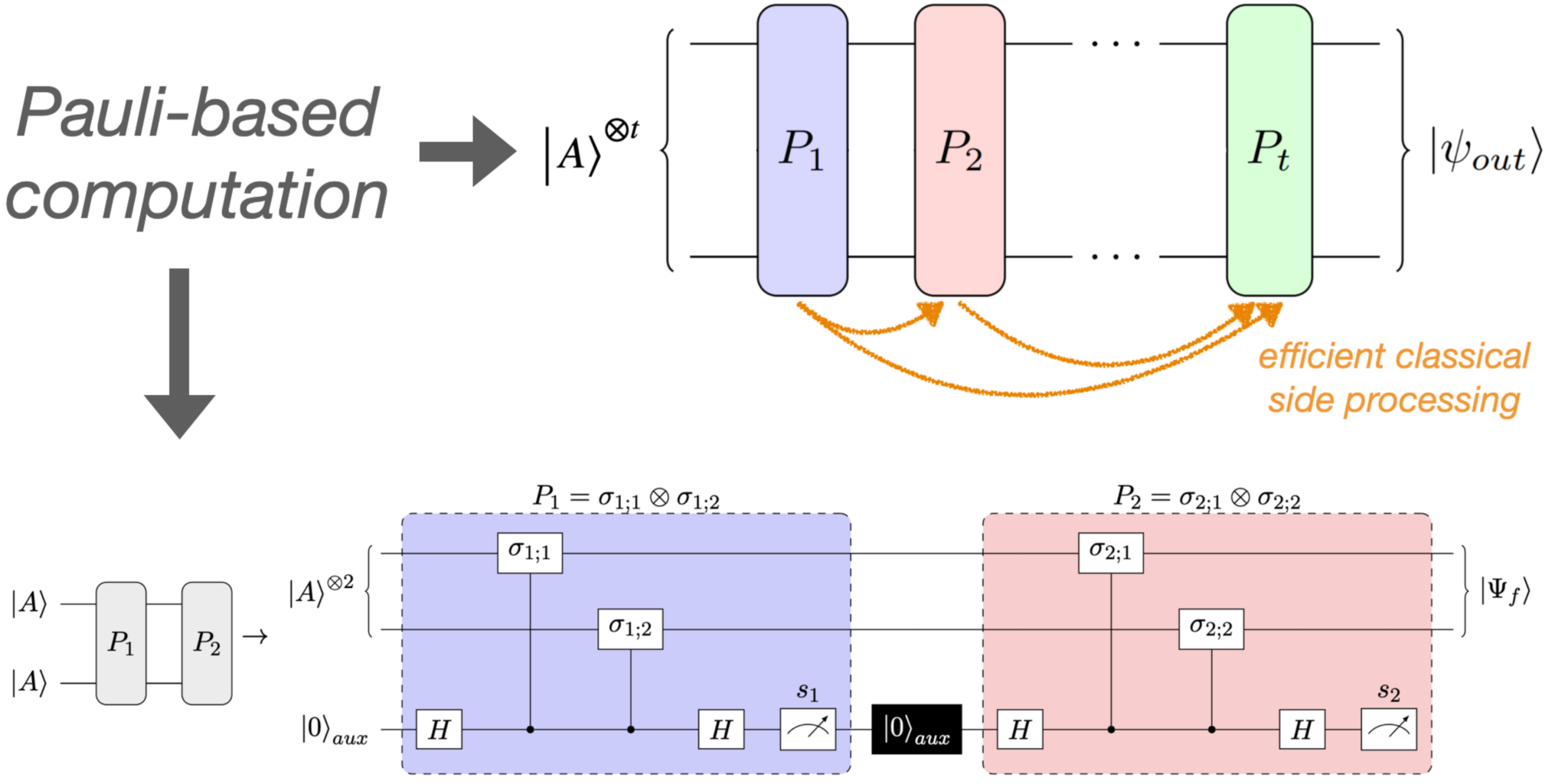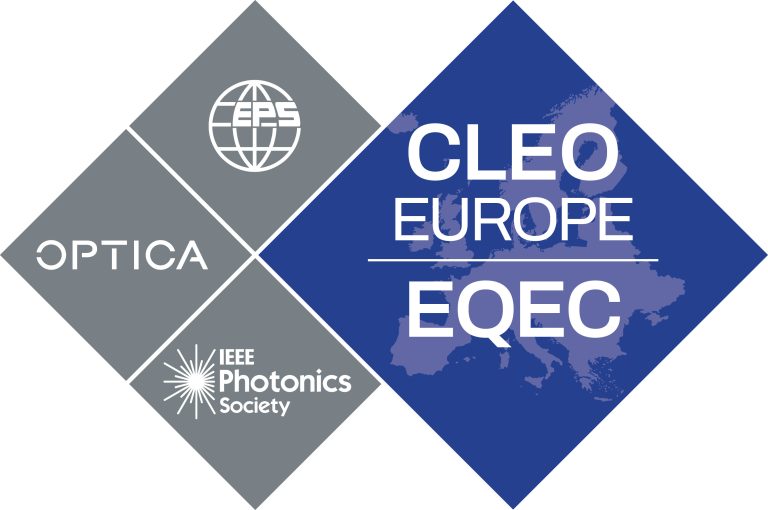Italian Quantum Weeks, 13-18 April 2024
Quantum Lab is pleased to announce the 2024 edition of the Italian Quantum Weeks (https://quantumweeks.it) exhibition “Speak the Unspeakable: A Journey into Quantum Mechanics” to be held at the Botanical Garden of Rome from 13 to 19 April. The event is organized in collaboration with the Department of Physics, the Museum of Physics and the … Leggi tutto
